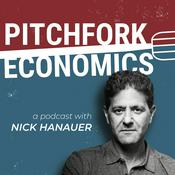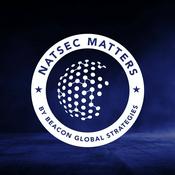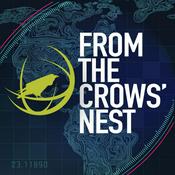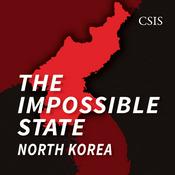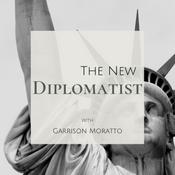301 Episoden
Everything You Always Wanted to Know About the Houthis But Were Afraid to Ask
06.2.2026 | 1 Std. 9 Min.“God is great. Death to America. Death to Israel. Curse on the Jews. Victory to Islam.”
The Houthi slogan isn’t just a chant — it’s a worldview. To understand who they are and what they want, Cliff is joined by former British ambassador to Yemen and FDD senior fellow Edmund Fitton-Brown, who gained firsthand experience dealing with senior Houthi leaders while serving as ambassador.- Washington just unveiled its new National Defense Strategy. But is it a serious blueprint for deterrence—or a dangerous exercise in wishful thinking? Host Cliff May is joined by Bradley Bowman and Mark Montgomery to examine whether America is underfunding its military on the brink of great-power conflict, why China’s cyber war is being soft-pedaled, and what the strategy gets right—and wrong—on Taiwan, Ukraine, Israel, and deterrence itself.
- 📺: Watch this episode on YouTube here.
In addition to slaughtering Iranian citizens by the thousands, Iran’s Islamist rulers are waging a cognitive war. To conceal their brutal crackdown, the regime has shut down the internet inside Iran. Beyond Iran’s borders, one corner of the digital world remains fully operational — shaping much of the world’s perceptions of what’s happening inside the Islamic Republic. That corner is Wikipedia, now an integral node in a nefarious network that propagates Islamist disinformation while whitewashing Tehran’s human rights atrocities. Investigative journalist Ashley Rindsberg joins Cliff to unpack Wikipedia’s role in modern information warfare. - 📺: Watch this episode on YouTube here.
Iran is once again convulsed by nationwide protests — but this time, the regime has pulled the plug. With the internet shut down and security forces unleashed, the Islamic Republic is violently crushing dissent in virtual darkness, silencing both protesters and the outside world.
As the Iranian people continue risking everything for freedom, will America finally put its money where its mouth is? When? How?
Reuel Marc Gerecht and Behnam Ben Taleblu join host Cliff May to discuss. - 📺: Watch this episode on YouTube here.
The arrest of Nicolás Maduro was a complex operation that exposed the weakness of a narco-dictatorship and sent a clear signal to America’s adversaries. In short: it was a tactical success. But taking out a dictator is not the same as dismantling a regime — and Venezuela’s regime remains largely intact.
Host Cliff May is joined by Carrie Filipetti to assess what the operation changed, what it didn’t, and what comes next — from who still holds power in Caracas and the fate of political prisoners, to what Venezuela’s uncertain future means for U.S. strategy in the Western Hemisphere and beyond.
Weitere Regierung Podcasts
Trending Regierung Podcasts
Über FDD's Foreign Podicy
A national security and foreign policy podcast from the Foundation for Defense of Democracies (FDD).
Podcast-WebsiteHöre FDD's Foreign Podicy, Stadt Wien Podcast und viele andere Podcasts aus aller Welt mit der radio.at-App

Hol dir die kostenlose radio.at App
- Sender und Podcasts favorisieren
- Streamen via Wifi oder Bluetooth
- Unterstützt Carplay & Android Auto
- viele weitere App Funktionen
Hol dir die kostenlose radio.at App
- Sender und Podcasts favorisieren
- Streamen via Wifi oder Bluetooth
- Unterstützt Carplay & Android Auto
- viele weitere App Funktionen


FDD's Foreign Podicy
Code scannen,
App laden,
loshören.
App laden,
loshören.















